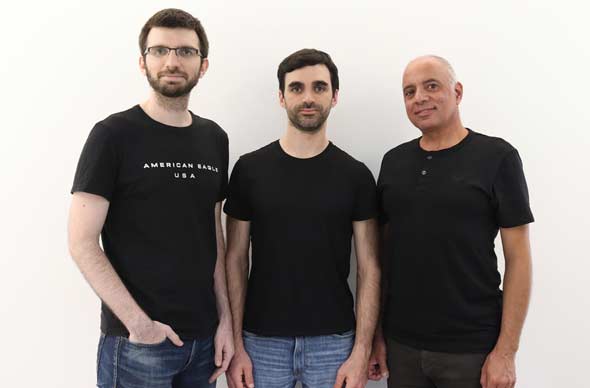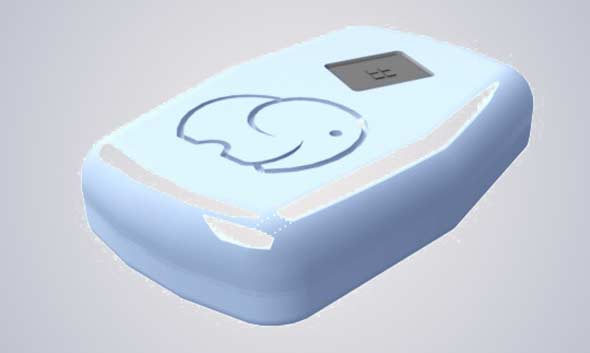This startup can translate babies’ crying
LittleOne Care’s device clips on to the baby’s clothes, and monitors their vital signs and listens to the noises the baby makes and analyzes the different tones and vibrations to alert the parents as to why the baby is crying
17:0618.06.20
It can be very tough when your baby won’t stop crying, so you try feeding him or changing her diapers, and nothing seems to do the trick. If only there was a way that babies could talk… Tel Aviv-based startup LittleOne Care Ltd. develops a device that can translate babies’ crying—the company claims.
Because the device is still in the testing stages, LittleOne Care intends to hit the market in 2021.
 LittleOne Care's founders. Photo: LittleOne Care
LittleOne Care's founders. Photo: LittleOne Care The device synchronizes their noises, cries, and movements to understand what the baby wants, Ami Meoded, the company’s chief marketing officer said in an interview with CTech. However, the device does not record the noises, so as to not overstep boundaries.
The idea for the company stemmed from when the company’s chief technology officer, Evgeni Machavariani and his wife had differing instincts as to why their baby was crying.
Thus far, 50 families in Israel have joined the company’s testing community, Meoded said.
 LittleOne Care's device. Photo: LittleOne Care
LittleOne Care's device. Photo: LittleOne Care “Most of the existing technologies notify the parents when an emergency has already happened, like when no heartbeat is detected. We also develop technology to notify the parents before emergencies occur, like analyzing changes with the baby’s breathing patterns or heartbeat, such as if the baby was mistreated by the preschool teacher or if the baby was left in the car and their body temperature rises to indicate that changes are occurring that need attention. Baby monitors say what is happening, but do not instruct the parent on what to do. Our platform goes beyond that and gives actual instructions to parents,” Gur Arieh said.
The device also analyzes babies’ behavior, measuring things like sleep patterns, how much television the baby watched, or how active the baby was.
Founded in 2018, the company has raised $500,000 to date, and is actively looking for more families to join its testing community.



